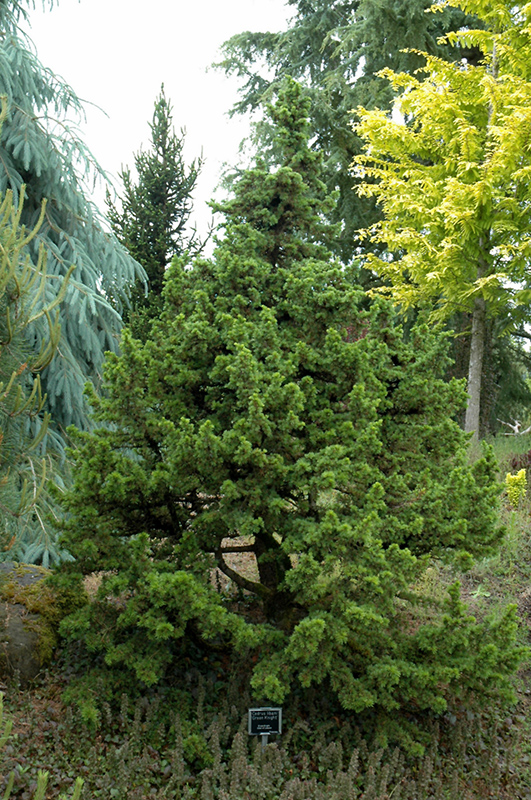Green Knight Dwarf Cedar of Lebanon
Cedrus libani 'Green Knight'
Height: 10 feet
Spread: 10 feet
Sunlight:
![]()
Hardiness Zone: 5b
Other Names: Dwarf Lebanese Cedar
Description:
A very slow growing variety featuring beautiful dense horizontal branching with stunning bright yellow-green new foliage, like a compact garden-scale version of the species; ideal for form and texture in the shrub garden and worth seeking out
Ornamental Features
Green Knight Dwarf Cedar of Lebanon is a dwarf conifer which is primarily valued in the landscape or garden for its distinctively pyramidal habit of growth. It has attractive dark green evergreen foliage which emerges chartreuse in spring. The needles are highly ornamental and remain dark green throughout the winter.
Landscape Attributes
Green Knight Dwarf Cedar of Lebanon is a dense multi-stemmed evergreen shrub with a distinctive and refined pyramidal form. Its relatively fine texture sets it apart from other landscape plants with less refined foliage.
This is a relatively low maintenance shrub, and usually looks its best without pruning, although it will tolerate pruning. It has no significant negative characteristics.
Green Knight Dwarf Cedar of Lebanon is recommended for the following landscape applications;
- Accent
- Vertical Accent
- General Garden Use
Planting & Growing
Green Knight Dwarf Cedar of Lebanon will grow to be about 10 feet tall at maturity, with a spread of 10 feet. It tends to fill out right to the ground and therefore doesn't necessarily require facer plants in front, and is suitable for planting under power lines. It grows at a slow rate, and under ideal conditions can be expected to live to a ripe old age of 100 years or more; think of this as a heritage shrub for future generations!
This shrub should only be grown in full sunlight. It is very adaptable to both dry and moist growing conditions, but will not tolerate any standing water. It is not particular as to soil type or pH. It is quite intolerant of urban pollution, therefore inner city or urban streetside plantings are best avoided, and will benefit from being planted in a relatively sheltered location. This is a selected variety of a species not originally from North America.

